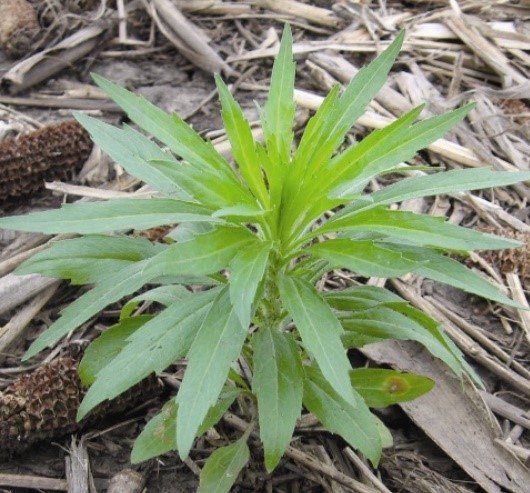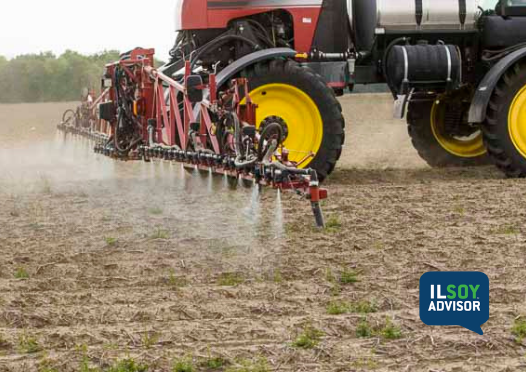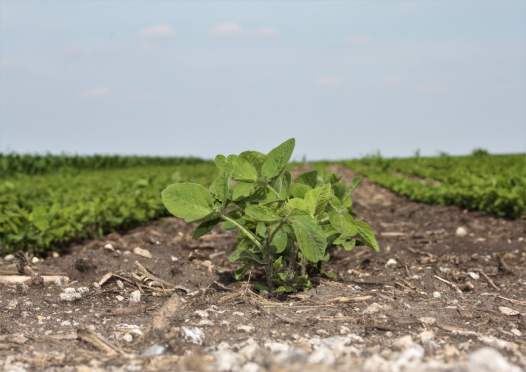Spring is in the air! The grass is greening up, the songbirds are back serenading us, each day is getting longer, the daily temperature is sort of warming up, and snow is changing to rain (for the most part). But that is the problem, isn’t it? Temps are staying lower than average, and the precipitation does not seem to want to stay away for longer than a 48-hour stretch, at best. In Champaign, the average temperature for the month of April so... Read More →
ILSOYADVISOR POST
Making A Burndown Recommendation
April 22, 2020
Marestail is very challenging to control in central and southern Illinois. Because it’s a winter annual, marestail germinates in the fall and starts to grow very aggressively during the spring warm up. Therefore, we must manage this weed very strategically. For many years, spring burndown applications have been used on no-till ground to control winter annuals, such as marestail, and has strongly relied on a medium to high rate of generic glyphosate.
Glyphosate-resistant marestail means that you should consider more than one herbicide for a spring burndown. If you use glyphosate alone in the tank, the marestail will metabolize it and keep growing, developing a new growing point that will make it very hard to terminate. As you make your spring burndown application, consider using a growth regulator herbicide such as 2,4-D or dicamba along with glyphosate and an effective residual.
 It’s easy to drive through the countryside and pick out the fields that recently got a spring burndown without a growth regulator, because the field is completely brown and the green healthy marestails are still growing.
It’s easy to drive through the countryside and pick out the fields that recently got a spring burndown without a growth regulator, because the field is completely brown and the green healthy marestails are still growing. In Illinois both marestail and waterhemp are developing single and stack resistance to our herbicide options. Therefore, it’s important to overlay effective residuals. If you are making a post application, follow the label for weed height or think outside the box for controlling these very strong pests. Consult with an Illinois CCA to better understand how to properly manage these tough weeds.
What makes a strong weed?
- Has the ability to grow and tolerate many environments
- Ability to grow fast
- Ability to survive under harsh condition (low moisture, low fertility)
- Ability to successfully pollinate (self- or cross-pollinate)
- Seed longevity in the field or strong dispersal quantity of seed
Below are great links to learn more about herbicide resistance and tools to look up effective MOA and SOA that can be used.





Comments
Add new comment